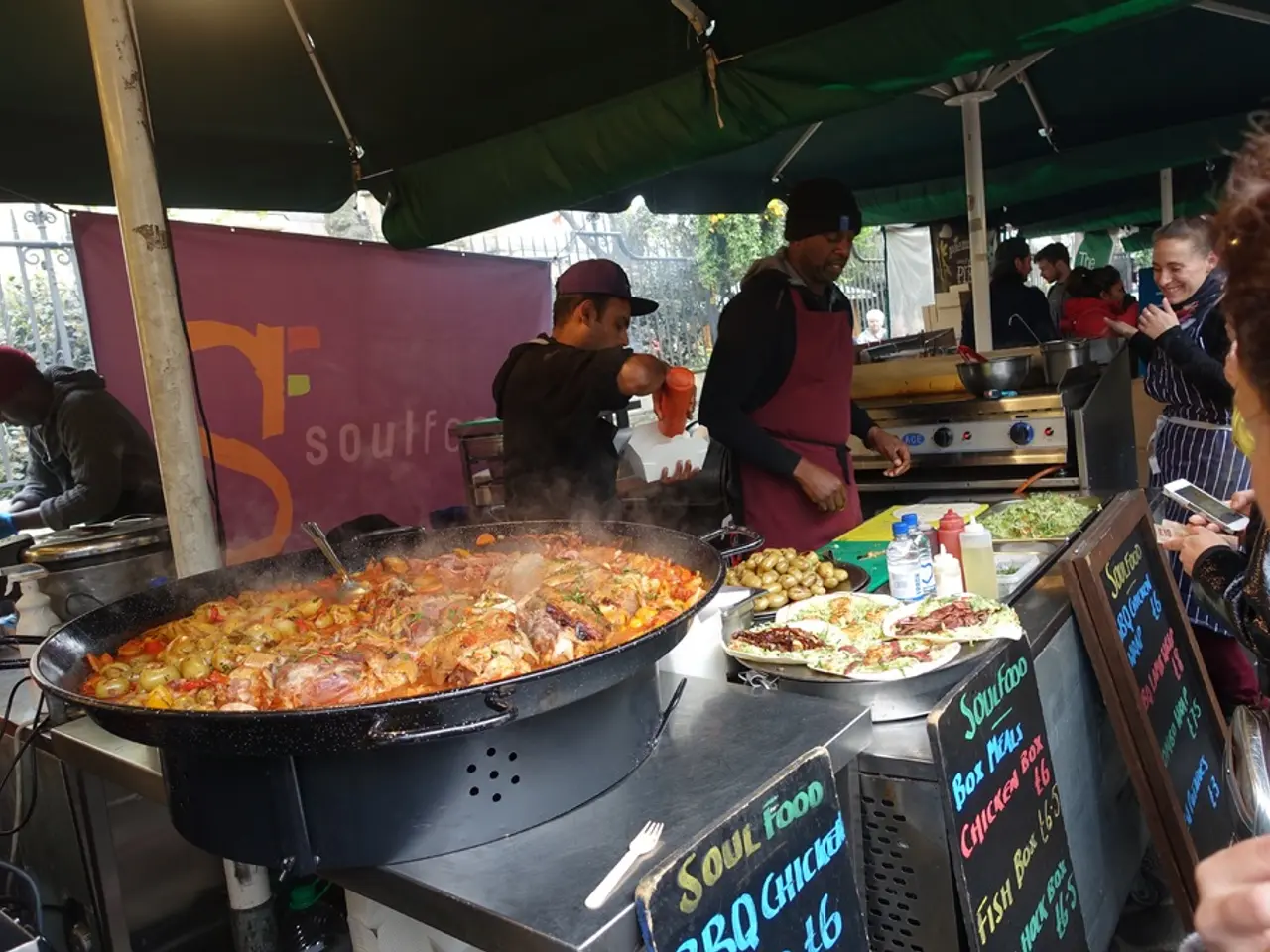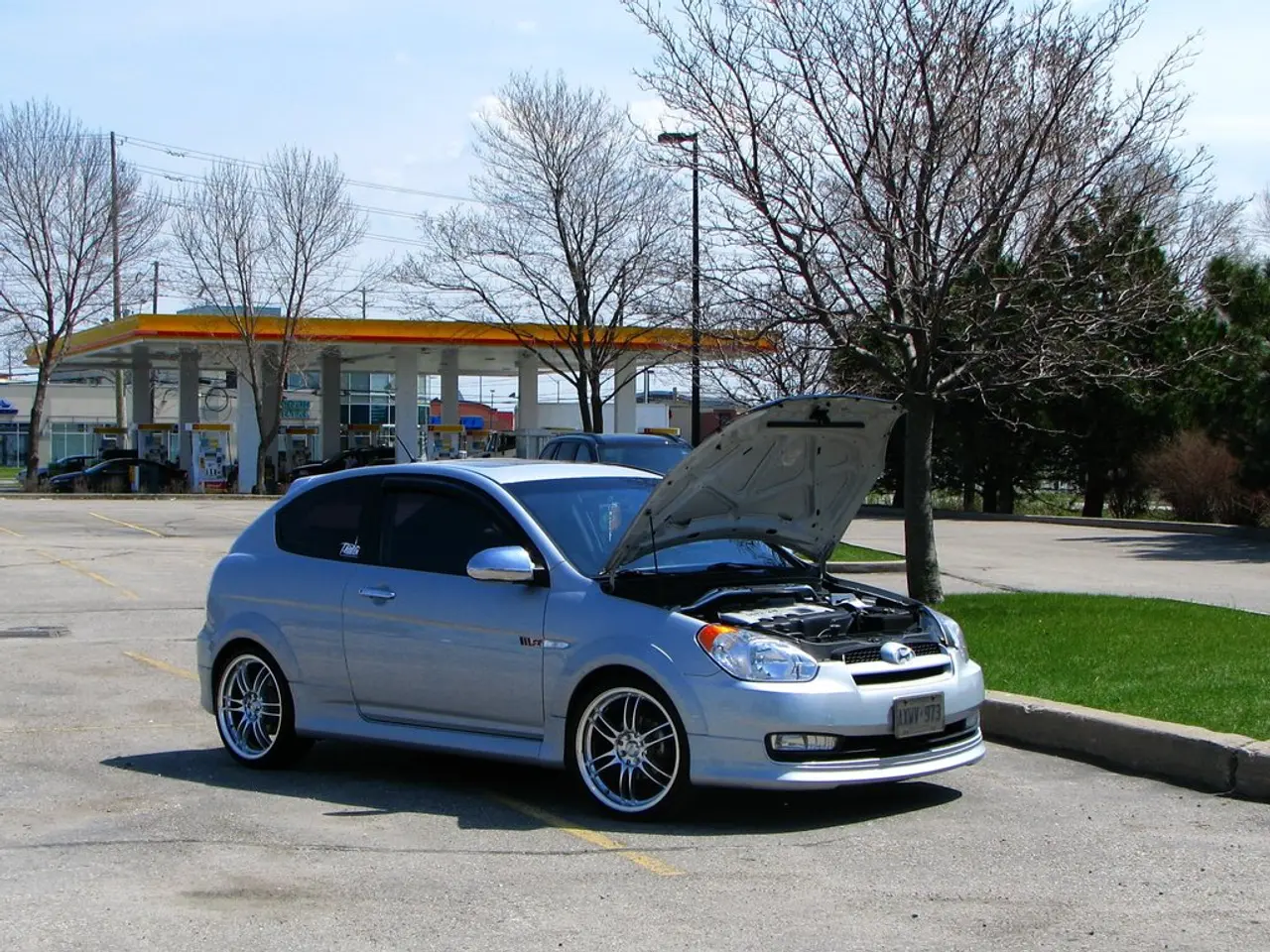Amidst the energy crisis, the biomarket is experiencing a sudden decline in foot traffic: "All of a sudden, the biomarket is emptying out".
In the heart of Cologne, Germany, Franziska Dederichs, the owner of the organic market stall Morgenrot, is grappling with the challenges posed by the ongoing economic crisis and rising costs. Since 2015, Morgenrot has been a fixture at markets in the city center and Refrath, as well as a small store in Cologne-Brück, offering a variety of organic produce, bio-vegetables, baked goods, fresh cheese, lentils, pasta, and tea.
## Economic Headwinds and Their Impact
The economic crisis and inflation have led to increased costs for goods and operations, with prices for organic produce and other items skyrocketing. This escalation has affected purchasing costs and operational expenses such as transport and energy, putting a strain on Morgenrot's finances.
The reduced spending power of consumers, due to eroding disposable income, has resulted in lower sales volumes and tighter profit margins for Morgenrot. Many customers are opting for cheaper alternatives, leading to a shift in consumer preferences towards REWE Bio instead of Morgenrot's offerings.
Franziska is under pressure to maintain affordable prices while covering increased costs, a delicate balancing act that can potentially jeopardise customer loyalty.
## Operational and Employee Challenges
The cost pressures have led to operational adjustments, such as reducing inventory levels or cutting back on certain product offerings. Morgenrot may also need to seek closer suppliers, renegotiate terms, or focus on best-selling items to maintain profitability.
Employee welfare and staffing challenges have arisen due to wage stagnation or limited growth opportunities. This can impact morale and staff retention, as well as limit the number of hours or staff members Morgenrot can sustain.
## The Road Ahead for Morgenrot
The economic pressure faced by Morgenrot threatens the long-term viability of small vendors like Franziska's market stall. To survive, she may need to innovate or diversify her business.
The pandemic saw a significant increase in sales at Morgenrot, but this trend has reversed due to price increases and raw material shortages. The cost of shopping at Morgenrot has risen from 60 euros to 75 euros, leading to a dramatic drop in sales.
To cope with the surge in demand during the pandemic, Franziska had to hire more staff. However, she is now operating with significantly fewer staff, meaning less service and a potential wait for customers.
Franziska is unsure if the dismissals and reduction in range will secure the future of Morgenrot. Prior to running the market stall, she was a master baker, a passion she may need to revisit to ensure the survival of her business.
The market stall, which has been in operation for 27 years, has had to discontinue or significantly reduce services such as food sharing and '2 good 2 go'. Franziska has also criticised impractical regulations, including the energy allowance that she had to pay out to her employees from her own pocket.
The economic crisis is expected to last for at least another year, a prospect that weighs heavily on Franziska's mind. The last team gathering at Morgenrot was held just last weekend, with Franziska having to lay off all but one full-time employee.
Despite these challenges, Franziska remains hopeful and resilient, determined to weather the storm and continue serving her community with quality organic produce.
The escalating costs in the industry due to the economic crisis have affected small-businesses like Morgenrot, with increased prices for organic produce and other items causing financial strain. This strain on finances has led to operational adjustments, such as reducing inventory levels or cutting back on certain product offerings, and employee challenges, such as wage stagnation or limited growth opportunities. Despite these difficulties, Franziska remains hopeful and resilient, looking to innovate or diversify her business to ensure the long-term viability of Morgenrot. In the face of the ongoing economic crisis and rising costs, Franziska is grappling with maintaining affordable prices for her customers while covering increased operational expenses.




